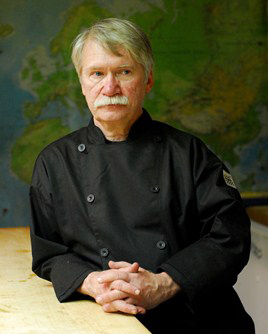These areas of focus would be a good place to start as faculty and administration assess the effectiveness of an educational program. While reviewing specific content of courses within a curriculum, it would be important to ask the question: “Are we adequately addressing those desired outcomes and reinforcing their importance in every possible way?” This would thus become a springboard for future student opportunities to express individual creativeness. The foundations—with desired outcomes—must be the heart and soul of a program. These foundations are, after all, the critical attributes that all chefs and operators seek in culinary graduates; they are the foundations of kitchen and career readiness.
The question is: Do we adequately teach this, live the outcomes, and set the example for our students to follow? These foundational elements of a culinary education are, quite possibly, even more important than cooking skills. These are the “learning how to function” skills and aptitudes for life.
The foundational elements are not difficult to teach. They are accomplished quite effectively during basic training and have been the military standard for generations. Some suggested methods of ensuring that this is accomplished are:
- Daily uniform roll call to inspect cleanliness, ironing, grooming, etc.
- Measure student ability to play well in the sandbox with others
- Measure listening skills
- Measure tolerance of others
- Measure dependability and have a zero tolerance for offenders just as you would with employees
- Emphasize that mise en place is essential and measure it
- Expect nothing but professional behavior
- Measure respect for chain of command: “Yes, Chef!”
- Expect pride in uniform
- Offer ample opportunities to stay conditioned—physically and mentally
- Require peer reviews
- Expect excellence in everything at all times, from how they care for their knives to the product on the plate (regardless of intended price point), written projects and other assignments, etc. Never waiver from this expectation.
Students who understand and consistently practice these foundational skills and aptitudes are positioned for success as interns or externs and full-time employees. This is what a chef and restaurateur expect of those enrolled in culinary programs, so this is what we should expect of our students. The measure of a solid culinary program is how well prepared its students are to “fit” and “function” in a professional environment. This is how employers, restaurant guests, parents who fund an education and the students themselves will assess your brand and your value. Restaurants will clamor to hire students who project the foundations of “fit.”
Paul Sorgule, MS, AAC, president of Harvest America Ventures, a “mobile restaurant incubator” based in Saranac Lake, N.Y., is the former vice president of New England Culinary Institute and a former dean at Paul Smith’s College. Contact him at This email address is being protected from spambots. You need JavaScript enabled to view it., www.harvestamericaventures.com.
 Are you preparing students to be kitchen and career ready?
Are you preparing students to be kitchen and career ready?